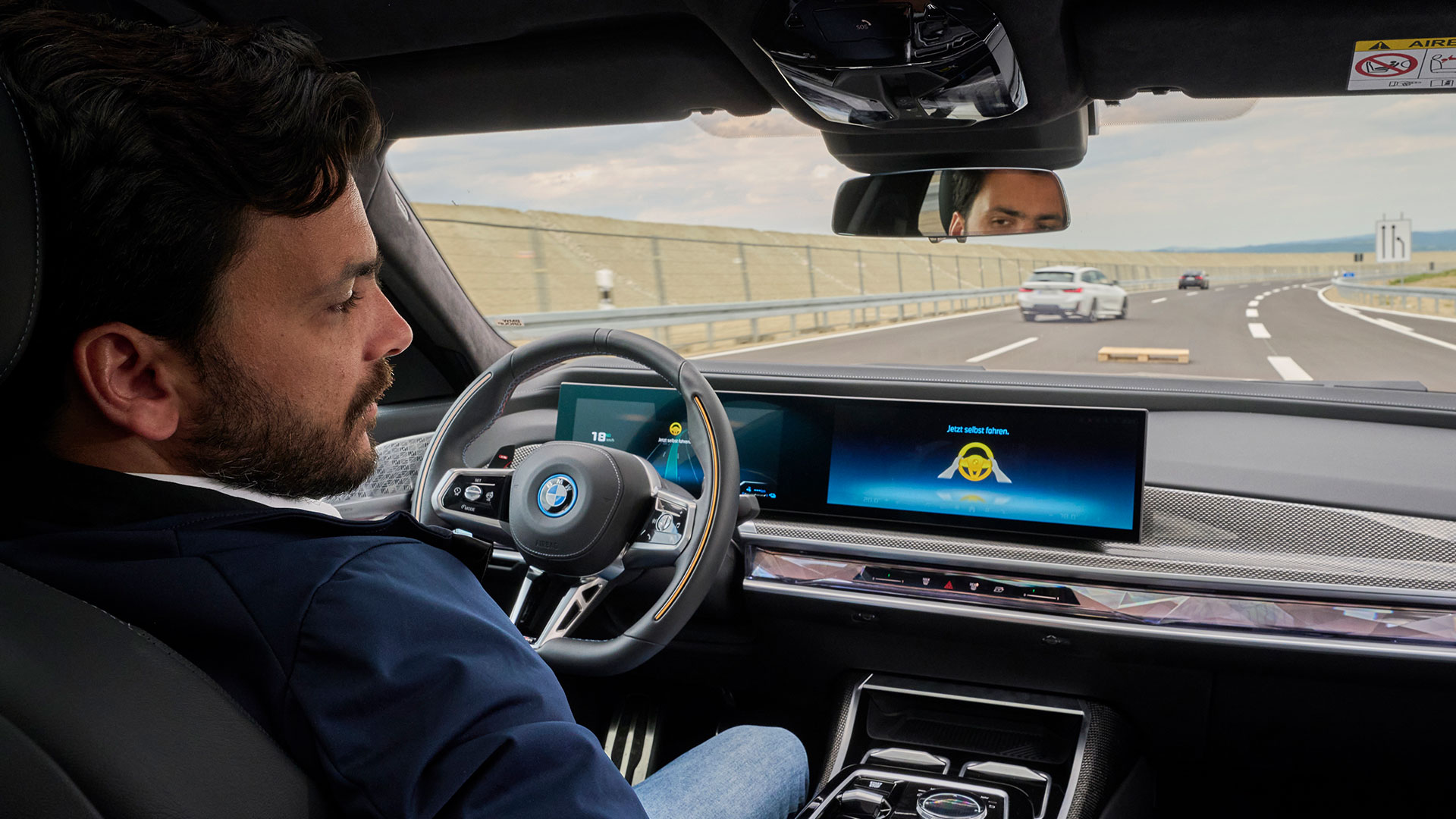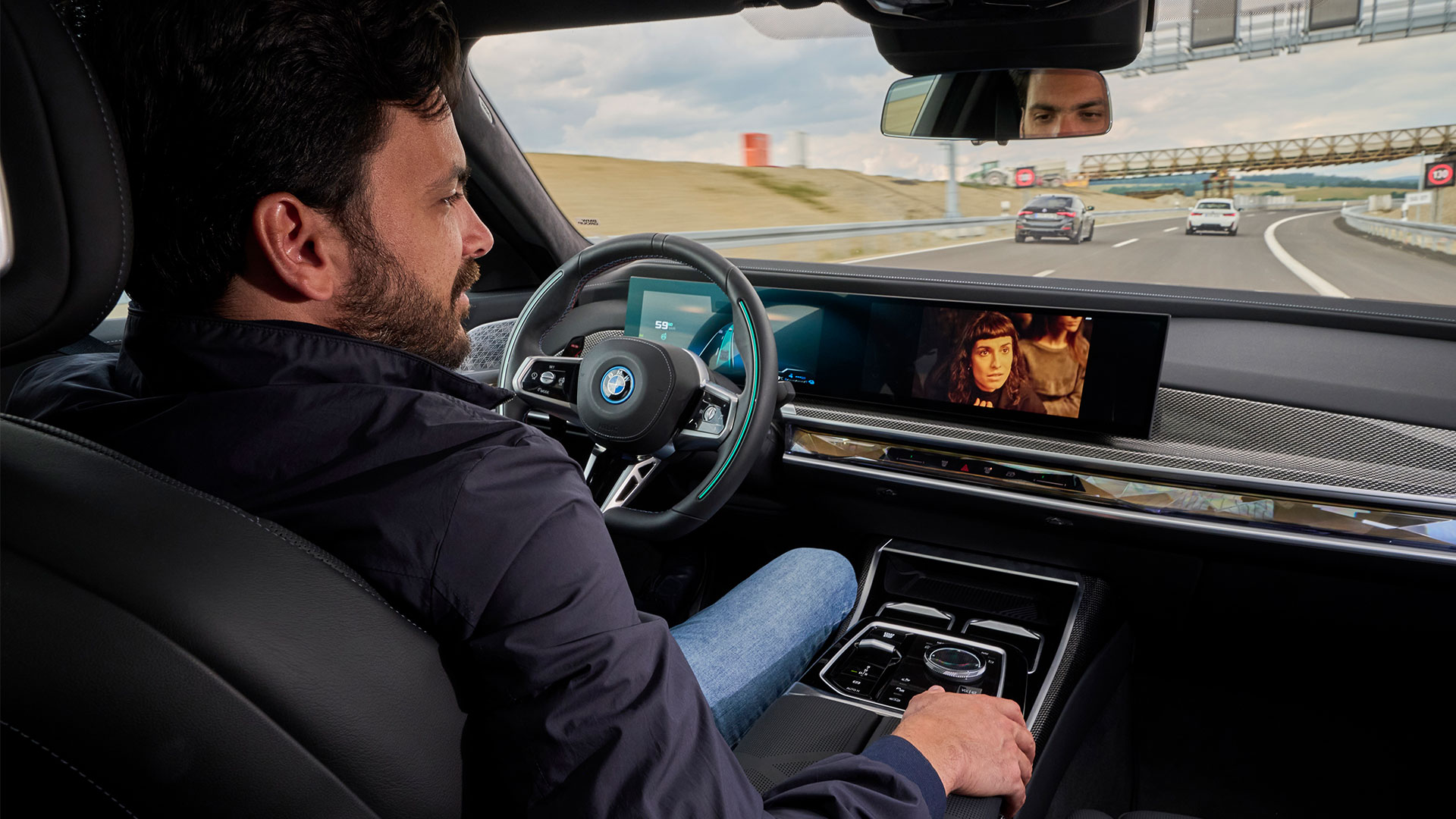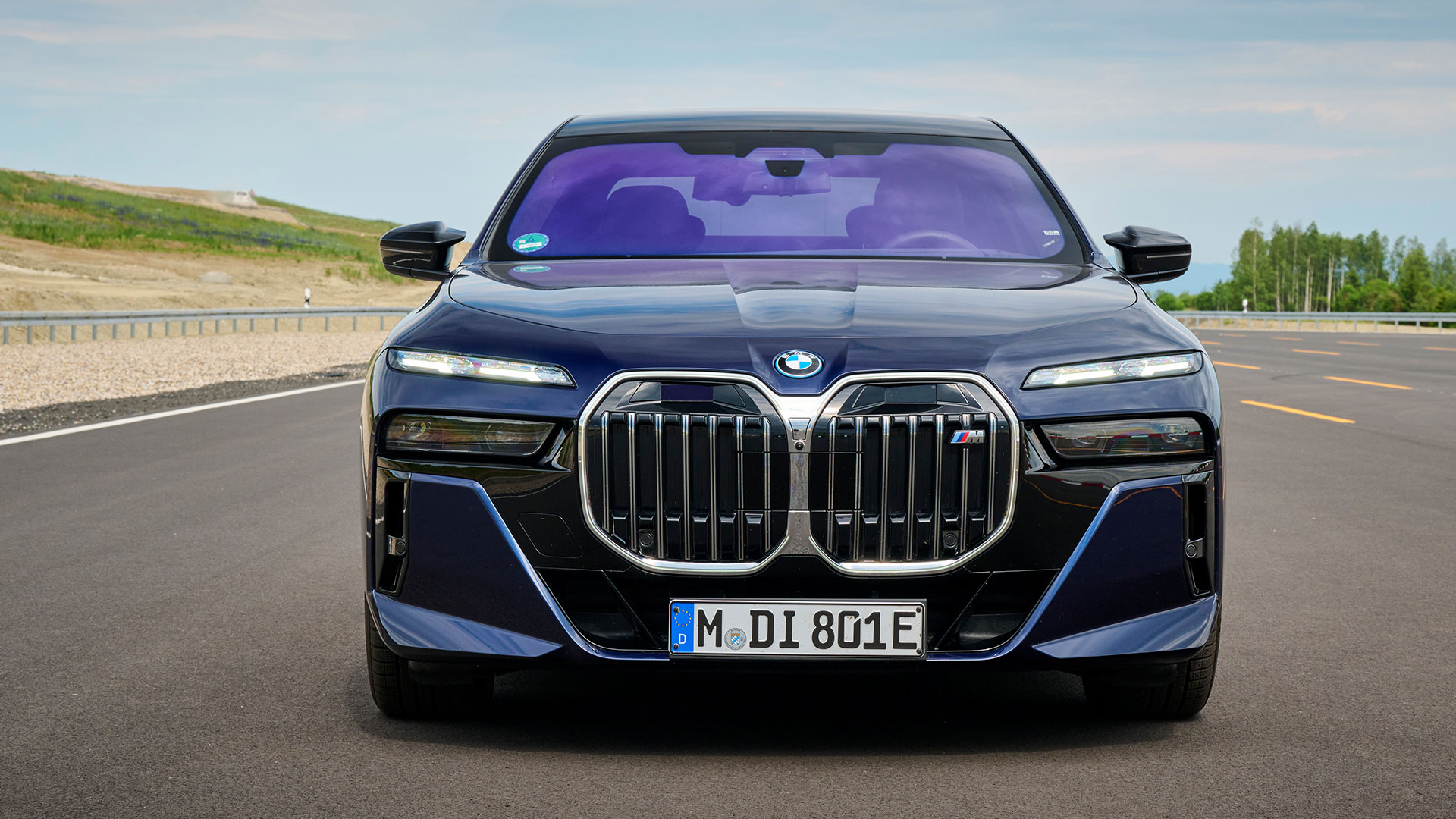
Legal self-driving will come to the BMW 7 Series from March 2024
German drivers will get a first crack at the newest autonomous tech
BMW is introducing the next level of self-driving standards into its cars, with 'Personal Pilot L3' deployed in the new 7 Series. That means from March 2024, German drivers will legally be able to take their hands off the wheel and put their attention elsewhere in the cabin.
As you might expect, there’s a fair few conditions attached to this tech to make sure it’ll be introduced successfully. First up, the cars will only be enabled to self-drive at a top speed of 37mph, specifically (condition number two) on motorways.
If you’re thinking that sounds a little slow for the highway, you’d be right. The next condition is what BMW calls a ‘structurally separated carriageway’. Separating cars in self-driving mode seems like a solid idea, not least because this system – BMW claims a world first – can also be used in the dark.
The Personal Pilot L3 package combines a suite of posh sensors with the live high-def map, ‘extremely accurate’ GPS, 5G connectivity and shiny new software, which is regularly updated remotely. The ability to 'see' in the dark is down to a smart combo of the 'latest-gen ultrasonic' sensor tech, LiDar and radars.
We’ve explained the SAE standards here, but essentially, basic cruise control is Level 1. Adaptive cruise control – using radar to maintain the distance between you and the car in front and sensors to brake (and in some cases change lanes) is Level 2.
BMW explains there’s not a vast amount of difference between L2 and L3 in terms of technological execution. The distinction actually lies in the liability. At L2 – known in BMW’s feature list as Highway Assist – the driver is 100 per cent in control and responsible, even though their hands and feet can, technically speaking, come off the wheel and pedals.
L3 cues drivers up to watch movies, take phone calls, or send emails while the car is in motion. The car operates autonomously, with the expectation that – if required – the driver can jump in. If the driver doesn't take over when asked? The car will guide itself to a safe stopping place.
Back in 2016, Ford actually admitted that it would likely leap frog L3 autonomy, since its engineers had become too complacent behind the wheel during tests. It wasn’t alone. Google’s Waymo and Audi muttered similar concerns in 2019 – that was back when Ford had plans to deploy L4 in 2021.
Now we’re post-pandemic, we’ve heard less about playing leapfrog and more about how the features will be deployed and regulated by all companies. And governments are getting in on the action, too. Earlier this month, the King’s Speech for the State Opening highlighted the Automated Vehicles Bill, due to set out how the UK will get self-driving cars on the roads safely.
No doubt the same facial recognition technology monitoring driver awareness in L2 will be used, in combination with other monitors, to deduce fault in case of accidents involving cars in L3 mode. Merc’s already stuck its hand up and said it’ll take the blame if its self-driving tech causes problems on the road.
Top Gear
Newsletter
Thank you for subscribing to our newsletter. Look out for your regular round-up of news, reviews and offers in your inbox.
Get all the latest news, reviews and exclusives, direct to your inbox.
The BMW Personal Pilot feature will set German BMW 7 Series customers back €6,000 (£5,200) and BMW tells us it’ll only be available in conjunction with Connected Drive services. Those opting for the i7 eDrive 50 or the i7 M70 xDrive, however, won't be eligible.
Trending this week
- Car Review
BMW 1 Series
- Top Gear's Top 9
Nine dreadful bits of 'homeware' made by carmakers










